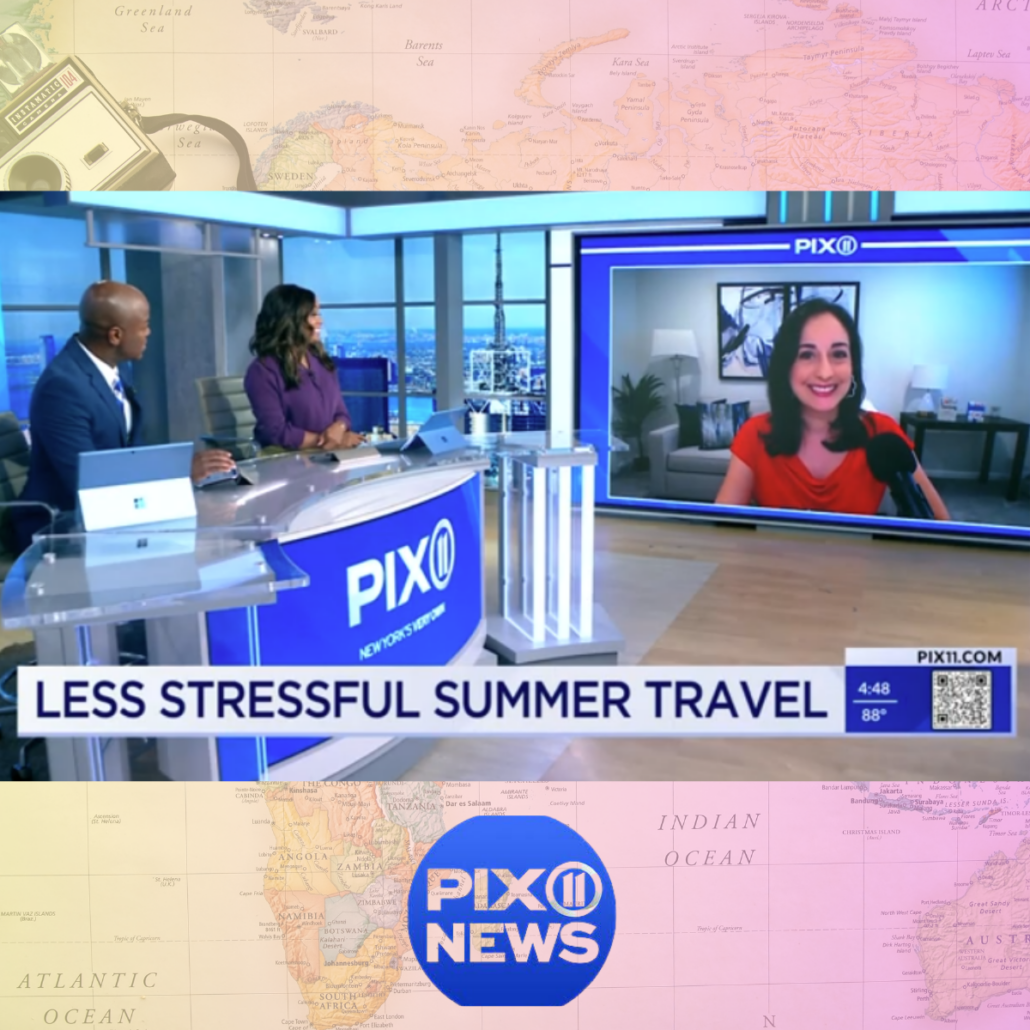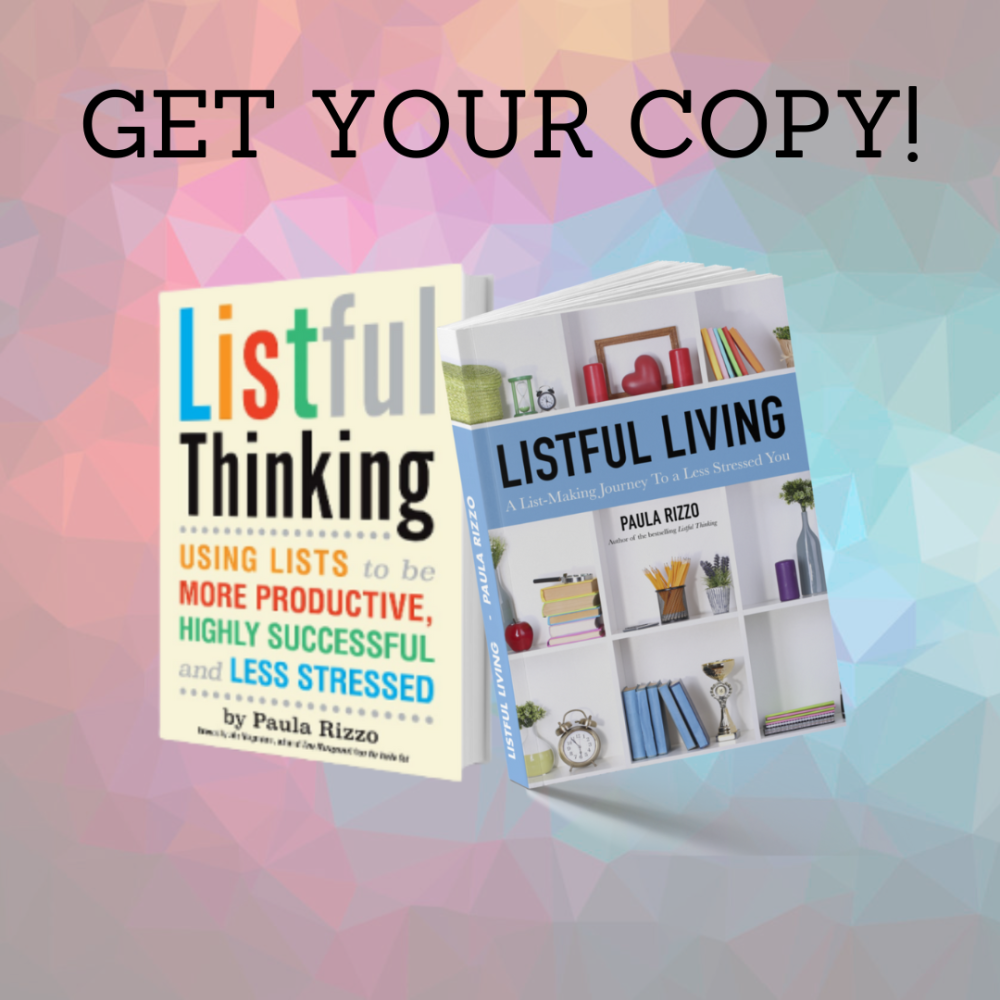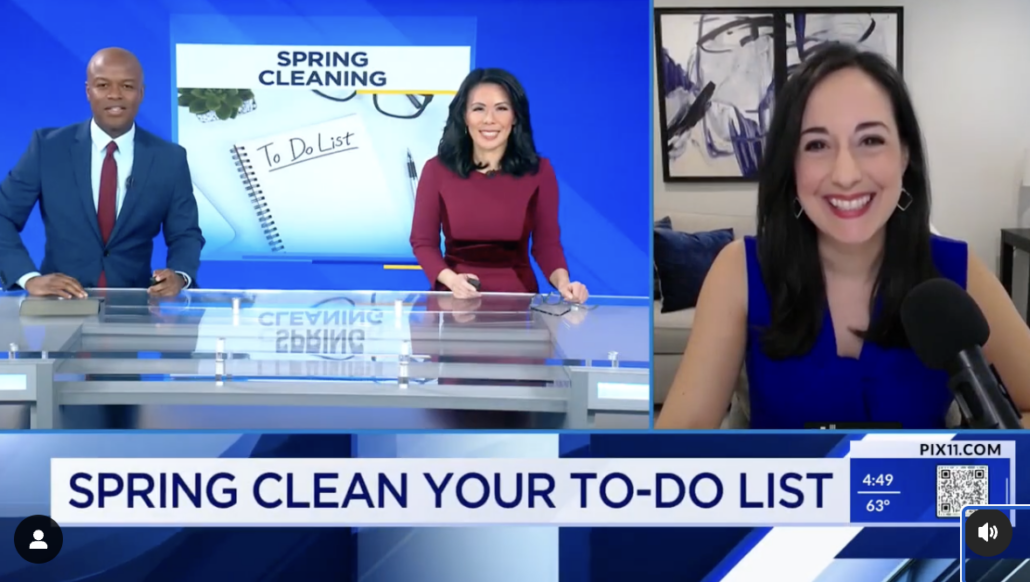Apps and Resources to Make Travel Less Stressful
___
BONUS FREEBIE: Want even more ways to stay organized, productive and less stressed? CLICK HERE to get access to my List-Making Starter Kit. It will boost your efficiency and get you back to doing more of the things you love.
___
I love taking trips to new places and revisiting my favorite spots — it’s one of the best ways to get out of your comfort zone and shift your perspective. I do as much traveling as I can and as a productivity expert, I’ve come up with some strategies to reduce my stress so I can focus on relaxing and having fun. The planning can even be enjoyable, if you approach it the right way.
Because let’s face it — traveling can be stressful! You’re not alone if planning trips and figuring out the logistics sometimes feels like more trouble than it’s worth.
Luckily, there are some wonderful apps and resources for taking a lot of the stress and hassle out of this process! I chatted with PIX11 News in New York City about my top tips.
Before you leave:
Wikivoyage: This website has so much information for planning and learning about countries. It’s like Wikipedia but it’s geared towards travelers!
Polarsteps: Download this app before you go to get a unique-to-you world map that has your photos geo-tagged. They even have an option to order a hardcover “travel book” documenting your trip!
Omio: I love this app for comparing the cost of different ways to get around. Plus you can book tickets in the app. It works well for Europe where rail travel is popular.
Wanderlog: This app is fantastic for plugging in your destinations on a multi-stop trip. You can connect your flight and hotel reservations to your itinerary, keep track of expenses, and even attach personalized checklists and to-do lists!
TripIt: This is a tried and true app that will keep everything organized for your trip. You can sync it to your email and all your itineraries and information will be updated in one place. I’ve used it for years and it often alerts me of flight delays before the airline does. I pay for the premium service. It uses AI to build smart itineraries that include weather forecasts and restaurant recommendations. Plus you can share your plans with friends.
AirTags: Lost luggage can be a real bummer. AirTags can help you find your lost suitcase if something happens to it in transit so you’re not stuck trying to replace your essentials. I’ve been using them for years and find them very helpful.
Get travel health insurance: It might seem like an added expense but it can really come in handy if you get sick while you’re in another country. Insuremytrip.com and Squaremouth.com are both good places to start.
Pack an “essentials kit”: Pack yourself a kit of everything you might need on your flight — small snacks, aspirin, gum, chapstick, an eye mask — and stash it somewhere easily accessible. You’ll save yourself the hassle of digging through your suitcase! I even put some travel slippers in there for long trips!
Pack Light: I’m notorious for packing too many toiletries. I really want them all but I don’t need the big sizes of every last product. Recently my friend Nicole turned me onto two great products that has really streamlined my packing experience. Now I’m using Subtl Beauty which creates little customizable makeup stacks with all the essentials. Plus, I’m using Cadance leakproof containers that hold all my lotions and potions. They are magnetic and come in different colors and sizes so you only bring what’s necessary. Plus, you can always carry your suitcase on with you since you will have the right amount of liquids in your bag.
Learn a couple of phrases: You don’t need to be fluent — but learning just a few essential phrases, like greetings and how to order food, can make it so much easier to get around. For a while I used Babbel to learn Italian, which was fun.
Bring a mini cooler: A small, foldable, soft-sided cooler can be your friend: you can stash cool drinks in it for a day out on the town, or pack a picnic in it to take on a hike. This is one of those little things that feels like a real luxury. Here’s one from CalPak that fits the bill.
Check your expectations: If you’ve ever been annoyed and stressed out by delayed flights or other travel hiccups, you’re not alone. With all the time, money, and effort that go into planning a trip, any inconvenience can feel heightened. That’s why I suggest checking your expectations for smooth sailing and making a pact with yourself to be flexible. Things will probably go awry at least once, and that’s okay!
While you’re there:
Timeshifter: Say goodbye to jetlag! This app helps you shift your circadian rhythms so you’re not knocked out by jet lag. It’s so good that even astronauts are using it! I’ve used it for years and it does work if you follow along with the suggestions.
Housmthr:Keep your rental house and housemates organized with this app. You can track house expenses, scheduling, social calendar, and even grocery deliveries.
Local transportation apps: check out the apps that locals use to get around in your destination. Many major cities have their own app that you can use to access maps, schedules, and even to pay for rides!
Maps.me: This app can be a real lifesaver — it’s an offline map app that you can use without WiFi or bars.
XE Currency Exchange: This is a currency exchange app and website — it can help you figure out what things cost in other countries. Plus, you can compare exchange rates to see if you’re getting a good deal.
Google Translate: Getting the app can make all the difference when you need to communicate — and you can even scan text with it!
Flush: This app helps you locate bathrooms wherever you are in the world! There’s nothing worse than having to go and not being able to find a restroom.
Viator: This app can connect with you all kinds of amazing experiences and tours.
When you get home:
Order groceries: The day before you get back, schedule a grocery delivery for the following day so that you don’t need to rush out to get food. I use a service called Fresh Direct but it’s only available in New York, New Jersey and Connecticut. But you could also use Instacart to get deliveries from local stores.
Send your photos out to be printed: It’s easy to forget about all the amazing snaps you took on your trip, especially if they’re only digital. That’s why I love getting photos printed. Snapfish has lots of options, from books of images to mugs to individual pictures for framing.
For more tips, you can check out my full segment on PIX11 News in New York City.
What are your favorite travel tips to make travel less stressful?
___
BONUS FREEBIE: Want even more ways to stay organized, productive and less stressed? CLICK HERE to get access to my List-Making Starter Kit. It will boost your efficiency and get you back to doing more of the things you love.
___







